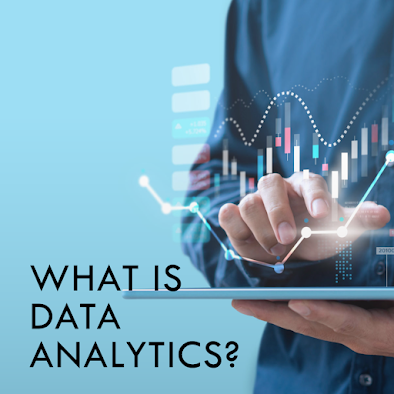Introduction
In today's digital era, data is being generated at an unprecedented pace. From social media interactions to online transactions, organisations and individuals are producing massive amounts of data every second. However, the true value lies in the ability to extract meaningful insights from this data. That's where data analytics comes into play. In this post, we will explore the fascinating world of data analytics, its significance in various industries and the transformational impact it can have on decision-making.
Understanding Data Analytics
Data analytics is the process of examining raw data to uncover patterns, draw conclusions and make informed decisions. It involves various techniques, including data mining, statistical analysis, predictive modelling and machine learning. In some of the cases, deep learning techniques are also implemented. By leveraging these tools and methods, organisations can gain valuable insights to drive strategic initiatives, optimise operations and enhance customer experiences.
Applications of Data Analytics
- Business Intelligence: Data Analytics plays a vital role in business intelligence, helping organisations gain a comprehensive understanding of their operations. By analysing historical data and real-time data, businesses can identify trends, monitor performance and make data-driven decisions to increase efficiency, profitability and customer satisfaction.
- Marketing and Customer Insights: Data analytics empowers marketers to gain a deeper understanding of their target audience. By analysing customer behaviour, preferences and demographics, organisations can tailor their marketing strategies, personalise campaigns and optimise customer experiences. This leads to improved customer engagement, increased conversion rates and enhanced brand loyalty..
- Risk Assessment and Fraud Detection: Data analytics is a powerful tool in identifying and mitigating risks. By analysing historical data, organisations can detect pattern, anomalies and fraud instances. This helps in implementing proactive measures, enhancing security protocols and protecting valuable assets, thereby minimising financial losses.
- Healthcare and Predictive Analysis: In the healthcare industry, data analytics has the potential to save lives. By leveraging patient records, medical research and real-time data, healthcare providers can identify early warning signs, predict disease outbreaks and optimise treatment plans. This enables more precise diagnoses, personalised care and improved patient outcomes.
Challenges and Future Trends
While data analytics presents immense opportunities, it also comes with challenges. Data privacy, security and ethical considerations are crucial aspects that need careful attention. Additionally, as technology advances, the volume and complexity of data continue to grow exponentially, requiring robust infrastructure, skilled professionals and scalable analytics solutions.
Looking ahead, several exciting trends are shaping the future of data analytics. These include the integration of artificial intelligence and machine learning algorithms, the rise of automated analytics platforms, the adoption of real-time analytics and the exploration of big data from emerging sources like the Internet of Things (IoT) and social media.
Conclusion
Data analytics has emerged as a game-changer, empowering organisations to harness the power of data and make informed decisions. It has the potential to revolutionise industries, drive innovation and create new business opportunities. As businesses embrace data analytics, it becomes increasingly important to develop a data-driven culture, invest in the right tools and talent and prioritise ethical considerations. By unlocking the potential of Data analytics, organisations can stay ahead of the competition, make impactful decisions and pave the way for a data-driven future.




No comments:
Post a Comment